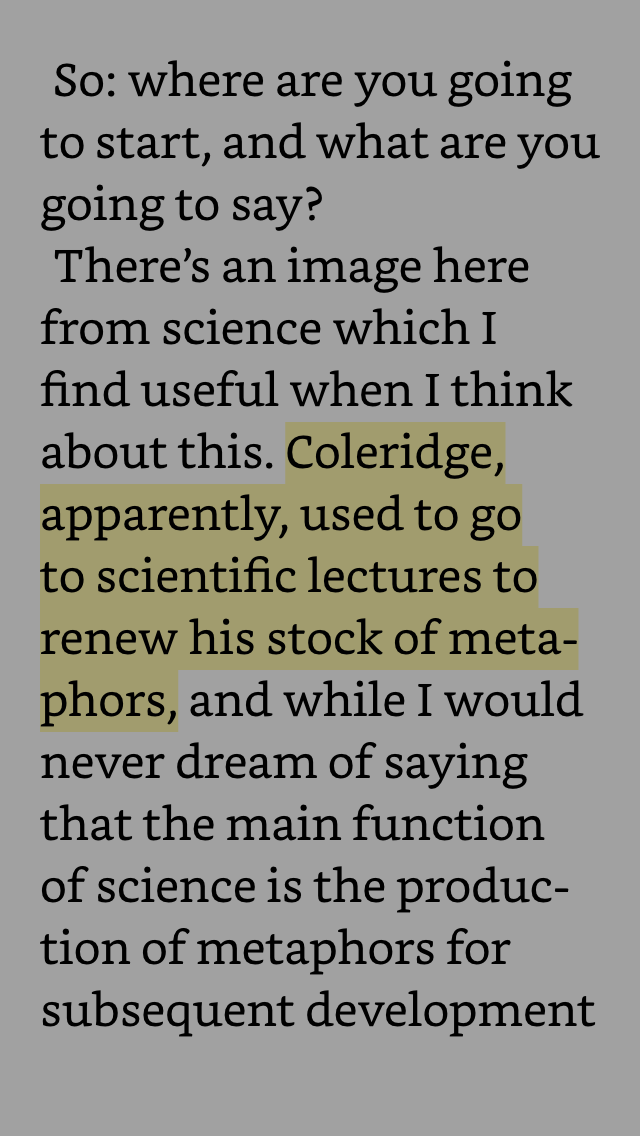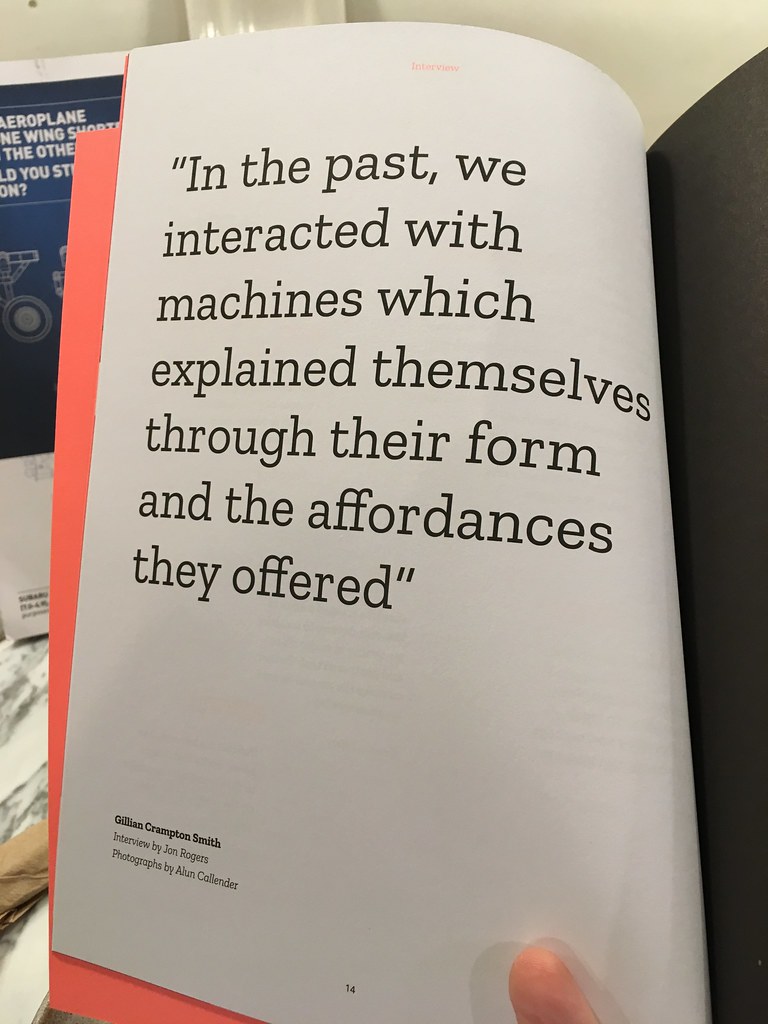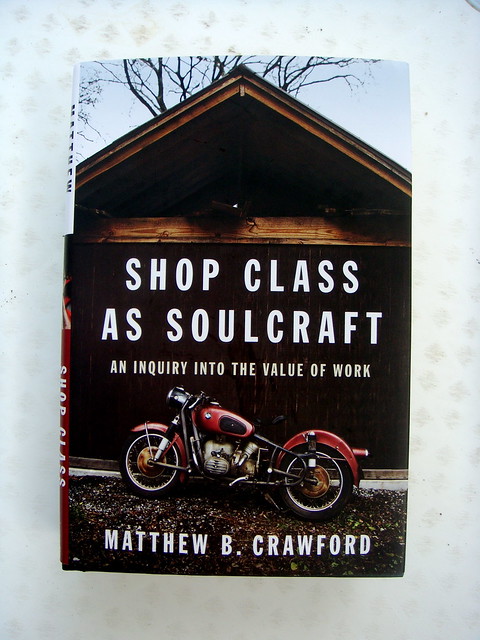Russell Davies
As disappointed as you are
About | Feed | Archive | Findings | This blog by email
Excellence in Excel
Proper data strategists won't be surprised to learn that I'm more of a PowerPoint person than an Excel one. I've not used a spreadsheet in anger since the early 90s. But I'm endlessly fascinated by thinking about mainstream software tools and the effects they have - so this little essay by Matt is right up my alley. Gorgeous stuff. Building on previous genius by Rod.
Makes me want to compile an Office 95 anthology. Critical writing on Word, PowerPoint, Excel, Access, Schedule+ and, of course, Binder. Anyone got any views on Binder?
February 07, 2018 | Permalink
Trespassing as a scientific technique
This moment from Neuropolis: A Brain Science Survival Guide:
"In his 1940 lecture series Dynamics of Psychology, however, German psychologist Wolfgang Köhler praised ‘trespassing as a scientific technique’, on the grounds that what is merely special data in one field may turn out to have much broader significance in another. Now this doesn’t mean the trespasser sees the big picture in a way that eludes everyone else. Trespassing can be helpful by accidentally treading spores from one field into another, where they unexpectedly start fizzing and wriggling into life. Or the trespasser might find fertilizer sacks full of rubble and rusty cogs blocking the entrances to badger setts. Certainly one of the great joys of researching this book has been to disinter fascinating brain science buried under all the reductive bluster."
Chimed rather well with this story of minimum description length and why hiring the 'best' people produces the least creative results :
"While in graduate school in mathematics at the University of Wisconsin-Madison, I took a logic course from David Griffeath. The class was fun. Griffeath brought a playfulness and openness to problems. Much to my delight, about a decade later, I ran into him at a conference on traffic models. During a presentation on computational models of traffic jams, his hand went up. I wondered what Griffeath – a mathematical logician – would have to say about traffic jams. He did not disappoint. Without even a hint of excitement in his voice, he said: ‘If you are modelling a traffic jam, you should just keep track of the non-cars.’ "
February 06, 2018 | Permalink
Big Detail
This is a fascinating conversation about public transport design. This bit stuck out because I suspect there's an interesting parallel here with marketing/audience data. The extra detail just doesn't add that much value:
"This has interesting connections to another marketing craze, which is the notion of big data, the notion that we now have so much more data about individual people’s transport needs that this ought to completely transform how we plan public transport. And the message is always fundamentally, Grandpa, what did you do before we came along? How did you manage in the Dark Ages before we came along and showed you this? And the answer is, we did fine because most big data is big detail and the Tube isn’t going to change anything it does; the New York City Subway is not going to change anything it does, just because we now have data, knowing that at 07:34 p.m., six people from over here go over there to that park when the weather’s nice. That’s the sort of data we’re getting and it’s not relevant to the design of high-capacity transit systems. It is in the nature of highly efficient public transport that you do not vary your routing according to that sort of detail. And I want to say, a lot of fantastic things have come out of big data but it’s also been, kind of, comically oversold as information at a level of detail that isn’t actually relevant to how plan high-efficiency, high-[unclear] public transport."
January 31, 2018 | Permalink
Space Below Her Feet
I've been listening to lots of audio to find things for 4:12:56 and have started working back through Radio 3's Between The Ears. And then I came across this programme about Gwen Moffatt. It's absolutely extraordinary. A remarkable, fascinating woman. And a lovely programme - poetry, weather, pluck, climbing.
You should listen.
January 30, 2018 | Permalink
Did we though?
This is this fortnight's newsletter. But with pictures:
Way back in 2009, on holiday in New England, I bought and read The Nature of Technology by W. Brain Arthur and Shop Class as Soulcraft by Matthew B. Crawford. I thought the Arthur book was brilliant and ripped it off for my talk at dConstruct that year. The Crawford book bothered me and has been bugging me ever since.
Part of his premise (as I remember) is that working on (pre-digital) cars and bikes is inherently satisfying and meditative because their engines and mechanics make physical intuitive sense to us in a way that digital devices don't. It's obvious and comprehensible to our hands and eyes how they connect up and work, fixing them gives us a sense of accomplishment that we can't get from working on a computer. He talks about the transparent affordances of carburettors and such-like and how the inner workings of a VW beetle engine reveals itself to us.
Which is great. Except they don't. Not to me anyway.
I'm a big fan of old cars. We have too many of them. I used to love our old Series III Land Rover because the air conditioning was a big flap at the front that you waggled up and down and I could easily work out how to fix that. But when you get inside, when you get to the engine, I'm utterly lost. There's nothing intuitive and comprehensible in there. You can't just guess how an internal combustion engine works.
What he's done there is mistake intuition for education. Or, at least, experience.
((Though, thinking about it now, it's entirely possible that this is not Mr Crawford's argument at all, and that I've misremembered and conflated his book with many other similar pieces over the years. If that is true I hope he'll forgive me.)
What I'm finding interesting now is looking at a world where more and more people have the same familiarity with computers and code that Matthew B. Crawford has with his bikes.
More and more people understand code as a material, something they know how to work with, something they can push and shove and tinker with. I'm beginning to wonder if that's what makes something like Algorave interesting. It's not just improvised dance music, it's also dance music where much of the audience has a real sense of how the music's getting made.
Ursula K Le Guin's brilliant rant about technology also seems relevant here.
Anyway.
January 29, 2018 | Permalink





